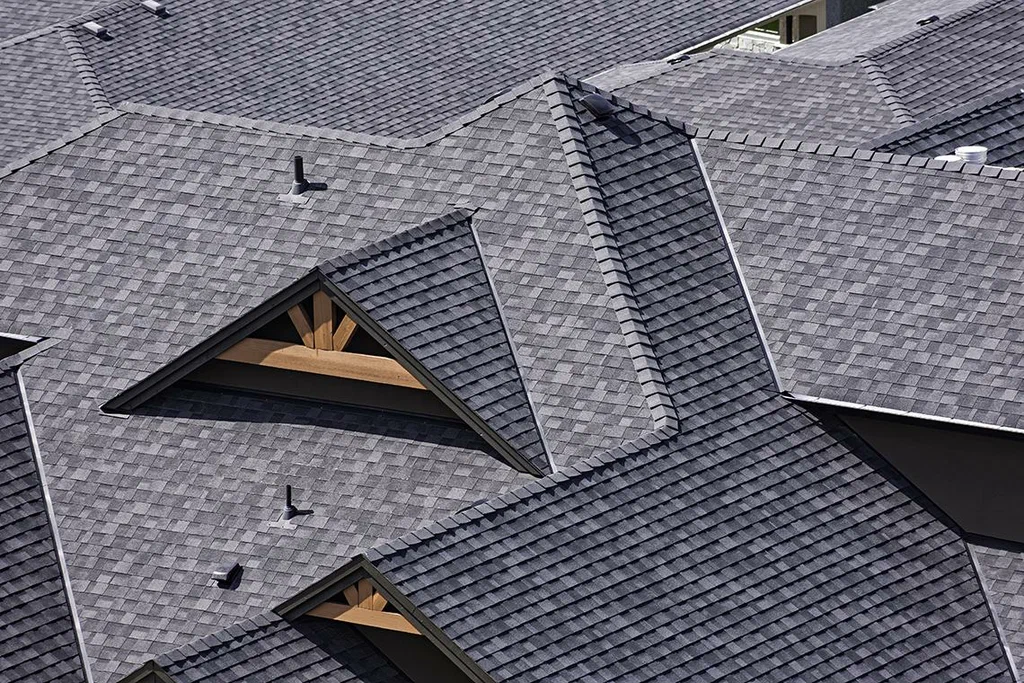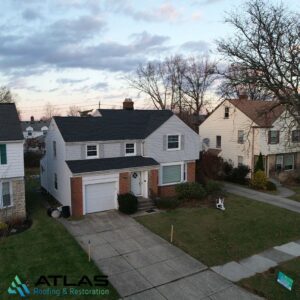Introduction
Choosing the right roofing materials for commercial buildings is essential for longevity, energy efficiency, and cost-effectiveness. Businesses must consider durability, weather resistance, and maintenance costs when selecting a roofing system. At Atlas Roofing & Restoration, we specialize in four high-performance commercial roofing materials: TPO (Thermoplastic Olefin), PVC (Polyvinyl Chloride), EPDM (Ethylene Propylene Diene Monomer), and Modified Bitumen. This guide explores the pros and cons of each to help you make an informed decision.
TPO Roofing: A Durable and Cost-Effective Option
What is TPO Roofing?
TPO is a single-ply roofing membrane made from polypropylene and ethylene-propylene rubber. It has gained popularity due to its balance of affordability and performance.
Pros and Cons of TPO Roofing
One of the biggest advantages of TPO roofing is its energy efficiency. Its reflective surface helps reduce cooling costs by minimizing heat absorption. TPO is also highly durable, resistant to UV rays, chemicals, and punctures, making it a long-lasting option for commercial buildings. Additionally, it is more affordable than PVC while offering similar benefits and is fully recyclable, making it an eco-friendly choice.
However, TPO roofing can have inconsistent quality depending on the manufacturer. Its heat-welded seams, while strong, may weaken over time if not installed properly. Since it is a relatively newer technology, it does not have as much long-term performance data as EPDM.
PVC Roofing: Superior Chemical and Fire Resistance
What is PVC Roofing?
PVC roofing is a single-ply membrane composed of polyvinyl chloride and plasticizers, making it highly flexible and durable.
Pros and Cons of PVC Roofing
PVC roofing is known for its excellent chemical resistance, making it ideal for commercial buildings exposed to grease, oil, or other harsh substances. It is also naturally fire-resistant and provides enhanced safety. With proper maintenance, PVC roofs can last over 20 years. The material is highly reflective, reducing heat absorption and improving energy efficiency.
On the downside, PVC roofing is more expensive than both TPO and EPDM. Over time, it may become brittle in extremely cold temperatures if not properly maintained. The installation process is also more complex and requires skilled professionals to ensure optimal performance.
EPDM Roofing: A Time-Tested and Flexible Solution
What is EPDM Roofing?
EPDM is a synthetic rubber roofing membrane widely used for low-slope commercial buildings. It is available in black or white.
Pros and Cons of EPDM Roofing
EPDM roofing is well known for its longevity, often lasting over 25 years with proper maintenance. It performs exceptionally well in extreme temperatures and UV exposure, making it a reliable option for various climates. Additionally, it is available in large sheets, reducing the number of seams and simplifying installation. It is also one of the most cost-effective commercial roofing options and is easy to repair.
However, black EPDM absorbs heat, which can increase cooling costs in warm climates. While the seams are strong, adhesive seams may degrade over time. It is also more susceptible to punctures from foot traffic or sharp objects compared to other materials.
Modified Bitumen Roofing: A Reliable Multi-Layer System
What is Modified Bitumen Roofing?
Modified bitumen is a multi-layer asphalt-based system reinforced with fiberglass or polyester for added strength and flexibility.
Pros and Cons of Modified Bitumen Roofing
One of the biggest advantages of modified bitumen roofing is its durability. It is highly resistant to extreme weather conditions, including heavy rain and snow. The material expands and contracts with temperature changes without cracking, ensuring long-term performance. It also offers multiple installation options, such as torch, cold adhesive, or self-adhering sheets, providing flexibility for different commercial applications. Furthermore, it is highly impact-resistant, making it ideal for buildings with frequent foot traffic.
However, installation can be labor-intensive and requires experienced professionals. It also requires regular inspections and maintenance to ensure longevity. Unlike TPO or PVC, modified bitumen has limited reflectivity, which means it may absorb more heat unless a reflective coating is applied.
Choosing the Right Roofing Material for Your Commercial Building
Selecting the best roofing material for your commercial building depends on your specific needs. TPO is a great choice for affordability and energy efficiency, while PVC provides superior chemical resistance and fire safety. EPDM is valued for its longevity and flexibility, and modified bitumen is ideal for durability in extreme weather conditions.
Work with Atlas Roofing & Restoration
At Atlas Roofing & Restoration, we specialize in high-quality commercial roofing solutions tailored to your business needs. Our expert team provides professional installation and maintenance services for TPO, PVC, EPDM, and Modified Bitumen roofing systems. Contact us today for a consultation and ensure your commercial property is protected with the best roofing materials available.
By choosing the right roofing material, you enhance your building’s durability, energy efficiency, and overall performance. Let Atlas Roofing & Restoration help you make the best decision for your commercial roofing needs.




